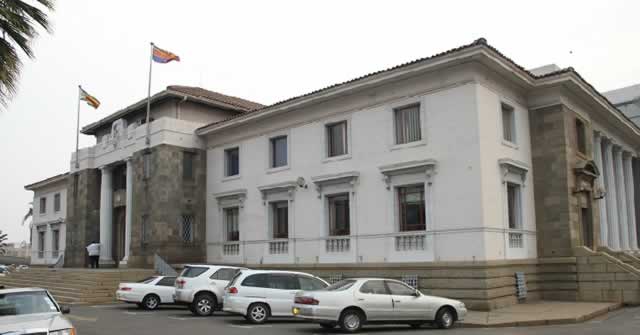‘Zim has enough grain to cover for drought’


Dr Made
Conrad Mwanawashe: Business Reporter
THE grain situation in Zimbabwe will remain stable in the short to medium term, enough to see the country through to the next season owing to Government’s strategic management and the private sector’s importation programmes, industry experts said yesterday. The experts said the country has enough stock to cover for the drought currently ravaging the southern African region, cited as the worst in 40 years.Currently, Zimbabwe is sitting on 320 000 tonnes of maize in Strategic Grain Reserves and 65 000 tonnes of wheat. And for that, the Grain Millers Association of Zimbabwe hailed Government’s management of grain in the country. The private sector has close to 200 000.
“The Minister of Agriculture, Mechanisation and Irrigation Development, Dr Joseph Made, has outperformed some of his counterparts in the region in ensuring that maize comes into the country and distributed to vulnerable groups and yet still remaining with sufficient supplies for SGR,” GMAZ chairman Tafadzwa Musarara said yesterday.
“Equally Minister Made has smoothened the process of private importation of grain. That is unprecedented in southern Africa. We have always had situations that, in case of a drought of this magnitude, the worst in 40 years, some could have expected famine and starvation but this has not been the case. Zimbabwe has outperformed most countries in the region given that it had the least donor support if any compared to what other countries have received,” he said.
Furthermore, despite Zimbabwe being at the epicentre of the drought, and being the hardest hit there have not been food shortages in the shops because Government has managed to mobilise enough grain on time to the extent that they now have excess. This ensures product availability and price stability.
“What this does is that there is a correlation between SGR and what private sector stocks all the time. When stocks are as sufficient as they are now, it stabilises prices, kills any prospects of hoarding and arbitrary buying and selling.
“More importantly, we will also have products such as meat and milk that feed from grain also stabilising in terms of pricing and available. So the grain situation remains stable and adequate for national supply requirements. Prices will also remain stable and product should be available across all commercial outlets around the country.
“So in the short term we are going to have a festive season that has enough maize meal, stock feeds and meat and there will be more than enough for consumers to buy. Going beyond that, in light of the ongoing imports we still remain more than sufficient as a country to feed ourselves up to the next harvest,” said Mr Musarara.
As such, he said, shortages of basic commodities especially maize meal will not be part of the economic and political narrative at the moment and possibly in the medium to long term.
On their part and despite the challenges with Nostro accounts, members of GMAZ, have mobilised grain from Mexico, Ukraine and are looking at Tanzania. GMAZ is also in advanced talks with Zambia which has now resumed exports with a view to importing from the northern neighbour.











Comments